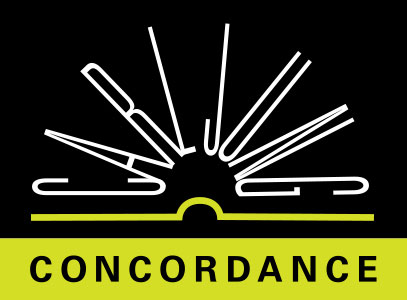The God-image may be understood as follows:
Since, psychologically speaking, the God-image is a complex of ideas of an archetypal nature, it must necessarily be regarded as representing a certain sum of energy (libido) which appears in projection
CW5 ¶ 89In most of the existing religions it seems that the formative factor which creates the attributes of divinity is the father-imago, while in older religions it was the mother-imago. These attributes are omnipotence, a sternly persecuting paternalism ruling through fear (Old Testament), and loving paternalism (New Testament)
CW5 ¶ 89In certain pagan conceptions of divinity the maternal element is strongly emphasized, and there is also a wide development of the animal or theriomorphic element (fig. 258.04a)
CW5 ¶ 8972 CW5 Ser: 4 Par 89 (c) FigNo 004a
The God-concept is not only an image, but an elemental force. The primitive power which Job's Hymn of Creation vindicates, absolute and inexorable, unjust and superhuman, is a genuine and authentic attribute of the natural power of instinct and fate which “leads us into life,” which makes “all the world become guilty before God” ( Romans 3 : 19 ), and against which all struggle is in vain
CW5 ¶ 89Nothing remains for mankind but to work in harmony with this will. To work in harmony with the libido does not mean letting oneself drift with it, for the psychic forces have no uniform direction, but are often directly opposed to one another
CW5 ¶ 89A mere letting go of oneself leads in the shortest space of time to the most hopeless confusion. It is often difficult, if not impossible, to feel the ground current and to know the true direction; at any rate collisions, conflicts, and mistakes are scarcely avoidable
CW5 ¶ 89I am of the opinion that, in general, psychic energy or libido creates the God-image by making use of archetypal patterns, and that man in consequence worships the psychic force active within him as something divine (fig. 258.05a)
CW5 ¶ 12970 CW5 Ser: 8 Par 129 (g) FigNo 258.05a
We thus arrive at the objectionable conclusion that, from the psychological point of view, the God-image is a real but subjective phenomenon
CW5 ¶ 129As Seneca says: “God is near you, he is with you, he is within you,” or, as in the First Epistle of John, “He who does not love does not know God; for God is love,” and “If we love one another, God abides in us” ( I John 4 : 8 and 12 (RSV) )
CW5 ¶ 129To anyone who understands libido merely as the psychic energy over which he has conscious control, the religious relationship, as we have defined it, is bound to appear as a ridiculous game of hide-and-seek with oneself. But it is rather a question of the energy which belongs to the archetype, to the unconscious, and which is therefore not his to dispose of
CW5 ¶ 130TO CARRY A GOD AROUND IN YOURSELF
MEANS A GREAT DEAL
This “game with oneself” is anything but ridiculous; on the contrary, it is extremely important. To carry a god around in yourself means a great deal; it is guarantee of happiness, or power, and even of omnipotence, in so far as these are attributes of divinity
CW5 ¶ 130To carry a god within oneself is practically the same as being God oneself. In Christianity, despite the weeding out of the most grossly sensual ideas and symbols, we can still find traces of this psychology
CW5 ¶ 130The idea of “becoming a god” is even more obvious in the pagan mystery cults, where the neophyte, after initiation, is himself lifted up to divine status: at the conclusion of the consecration rites in the syncretistic Isis mysteries he was crowned with a crown of palm leaves, set up on a pedestal, and worshipped as Helios (fig. 258.06)
CW5 ¶ 13071 CW5 Ser: 16 Par 130 (m) FigNo 258.06
This idea of becoming a god is age-old. The old belief relegates it to the time after death, but the mystery cults bring it about in this world
CW5 ¶ 133When man becomes God, his importance and power are enormously increased. That seems to have been its main purpose: to strengthen the individual against his all-too-human weakness and insecurity in personal life
CW5 ¶ 134But the strengthening of his power-consciousness is only the outward effect of his becoming God; far more important are the deeper lying processes in the realm of feeling
CW5 ¶ 134For whoever introverts libido, i.e., withdraws it from the external object, suffers the necessary consequences of introversion: the libido which is turned inwards, into the subject, reverts to the individual past and digs up from the treasure-house of memory those images glimpsed long ago, which bring back the time when the world was a full and rounded whole
CW5 ¶ 134First and foremost are the memories of childhood, among them the imagos of father and mother. These are unique and imperishable, and in adult life not many difficulties are needed to reawaken those memories and make them active
CW5 ¶ 134The regressive reactivation of the father and mother imagos plays an important role in religion
CW5 ¶ 134The benefits of religion are equivalent, in their effects, to the parental care lavished upon the child, and religious feelings are rooted in unconscious memories of certain tender emotions in early infancymemories of archetypal intuitions
CW5 ¶ 134